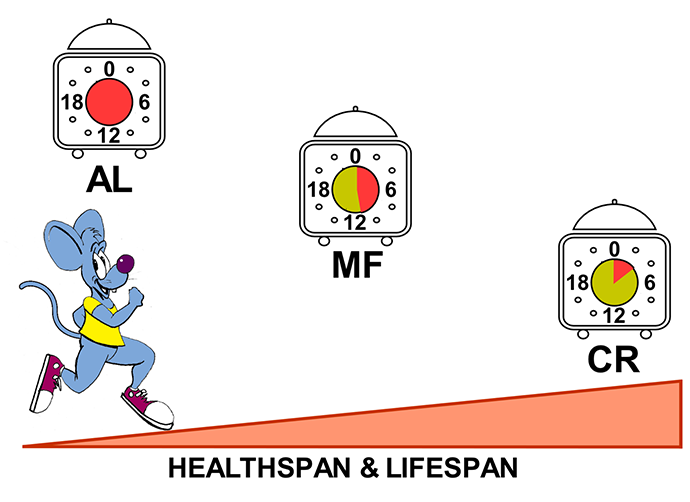"Benefits seen regardless of calorie intake, diet composition in NIH-supported study"
Chip Rose | (301) 496-1752 |This email address is being protected from spambots. You need JavaScript enabled to view it.
A new study published in the Sept. 6, 2018 issue of Cell Metabolism revealed that increasing time between meals made male mice healthier overall and live longer compared to mice who ate more frequently. Scientists from the National Institute on Aging (NIA) at the National Institutes of Health, the University of Wisconsin-Madison, and the Pennington Biomedical Research Center, Baton Rouge, Louisiana, reported that health and longevity improved with increased fasting time, regardless of what the mice ate or how many calories they consumed. National Institute of Aging Director Richard J. Hodes, M.D. stated that this study showed that mice who ate one meal a day thus, had longest fasting period lived longer and had better outcomes for common age-related liver disease and metabolic disorders.
 |
| Mice with longer fasting times (green) and shorter times when food was available (red) had better health outcomes and longevity than mice who were allowed to eat around the clock. – Image credit NIA IRP. |
"Increasing daily fasting times, without a reduction of calories and regardless of the type of diet consumed, resulted in overall improvements in health and survival in male mice," said Rafael de Cabo, Ph.D., the lead author and chief of the Translational Gerontology Branch of the NIA Intramural Research Program. "Perhaps this extended daily fasting period enables repair and maintenance mechanisms that would be absent in a continuous exposure to food."
The researchers say their findings are encouraging for future studies on how these types of time-restricted eating patterns might help humans to maintain healthy weight and reduce some common age-related metabolic disorders.









